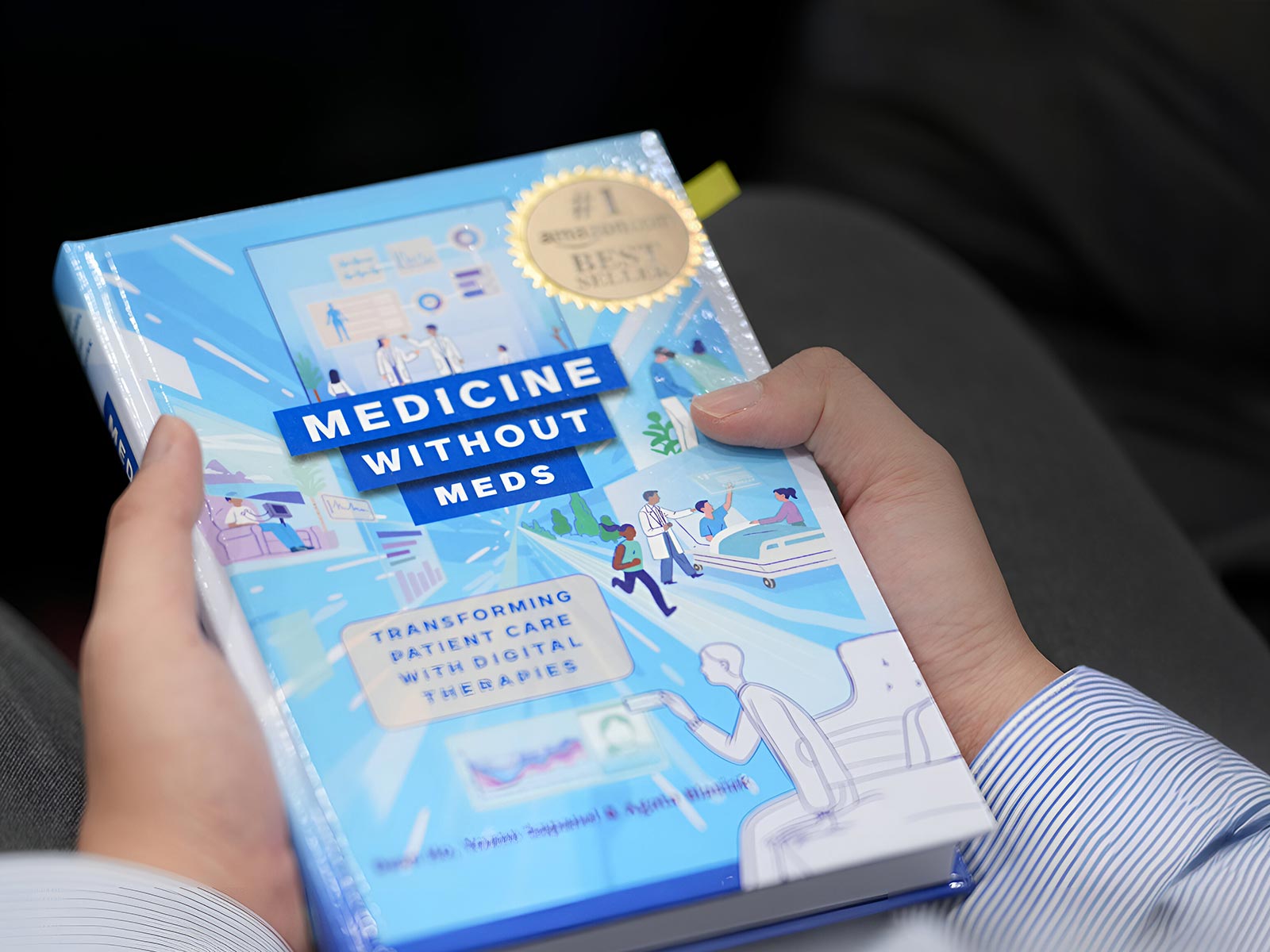
Issue 49
Feb 2024
DOSSIER
By Alston Ng, Research Assistant, Centre for Sustainable Medicine

According to the 2023 Lancet Countdown report, The multiple and simultaneously rising risks of climate change are amplifying global health inequities and threatening the very foundation of human health. Health systems are increasingly strained, and 27% of surveyed cities declared concerns over their health systems being overwhelmed by the impact of climate change.1
Given the accelerating pace of global climate change, health systems have the urgent task of transforming clinical practice, strengthening the climate-resilience of their facilities and services and delivering on healthcare decarbonisation.
of surveyed cities declared concerns over their health systems being overwhelmed by the impact of climate change
5-8%
of carbon emissions are accounted for by healthcare provision
Globally, healthcare provision accounts for 5-8% of carbon emissions. Were it a country, healthcare would be the fifth largest emitter on the planet. Aside from round-the-clock hospital operations, energy-intensive medical equipment use, and the reliance on single-use disposables for infection control, certain medical practices magnify the carbon footprint of the healthcare sector.
Take the use of anaesthetic agents like desflurane and sevoflurane for instance. Both have a global warming potential many times that of carbon dioxide and they remain unmetabolised when released into the atmosphere. Desflurane, for instance, is 2,540 times more potent than an equivalent mass of carbon dioxide at trapping heat; using just a bottle produces the same effect as burning 440kg of coal.
The potential for emission reductions in the healthcare sector is enormous. To support international efforts in climate action and maximise the co-benefits of healthcare decarbonisation, the Centre for Sustainable Medicine was launched in Yong Loo Lin School of Medicine, National University of Singapore (NUS Medicine). It sets out to:
|
• |
Pioneer clinically relevant and solutions-focused research designed to drive high-quality, low-carbon care. |
|
• |
Transform medical education and prepare future healthcare professionals to be at the forefront of the response to climate change. This will involve embedding sustainability into the foundations of undergraduate medical school and graduate-level training opportunities for healthcare professionals of all backgrounds. |
|
• |
Support health policymakers and hospital administrators across the world to develop effective strategies to achieve net-zero healthcare. |
The Centre is led by Professor Nick Watts, who has been appointed Professor of Sustainable Medicine, and was Chief Sustainability Officer at the UK’s National Health Service.

Centre for Sustainable Medicine leadership Prof Nick Watts (2nd from left, back row) and Dr Amanda Zain (4th from right, front row) with NUS President, Professor Tan Eng Chye (3rd from left, front row) and the rest of the NUS delegation at COP28.
“Without urgent action, climate change will overwhelm health systems in Singapore and across the world. The newly minted Centre for Sustainable Medicine at NUS Medicine will tackle this challenge, helping doctors, nurses and hospitals prepare for the spread of infectious diseases and weather extremities. At the same time, it will conduct research and implement net zero healthcare across the country, directly improving the health of our patients and reducing stretched health budgets,” said Prof Nick Watts.
A robust response to the climate crisis must be one that takes place at every level. Beyond modifying behaviour in care provision, health systems must develop innovative models and approaches to care that are patient-centred, energy-efficient, and non-polluting. This cannot be achieved without collaboration, dialogue, and learning between stakeholders in climate science, public health, clinical practice, and healthcare administration.
To that end, the Centre attended the 28th session of the UN Climate Change Conference (COP28) as a representative of NUS and Singapore. There, it provided input to government officials, researchers, educators, and civil society leaders on the co-benefits of health-centred adaptation efforts and low-carbon care provision, and highlighted concrete first steps that health systems can adopt to deliver environmentally sustainable care.
Come March this year, the Centre will also host the first in-person meeting of the newly formed Lancet Commission on Sustainable Healthcare in NUHS. Bringing together the world’s leading experts on health, healthcare, and climate change, the Centre will advance the research agenda on sustainable care delivery and propose locally relevant strategies to achieve zero-carbon healthcare.
In the year ahead, the Centre will convene experts from the UK, US, Australia, and Singapore to develop the first comprehensive assessment of the carbon impact of healthcare in Singapore. Results from the assessment will inform future policies and standards in healthcare delivery, and allow experts to develop a well-rounded net-zero healthcare strategy to support Singapore in achieving its climate ambitions.
Without urgent action, climate change will overwhelm health systems in Singapore and across the world. The newly minted Centre for Sustainable Medicine at NUS Medicine will tackle this challenge, helping doctors, nurses and hospitals prepare for the spread of infectious diseases and weather extremities. At the same time, it will conduct research and implement net zero healthcare across the country, directly improving the health of our patients and reducing stretched health budgets.”
The field of sustainable medicine offers exciting opportunities for the healthcare profession to significantly improve health outcomes and strengthen health system operations. The good news is that support for climate action among healthcare professionals is already considerably high. In a survey conducted by the Centre, 82% of local healthcare professionals support action towards a more sustainable health system, and two-thirds believe that Singapore should participate in or be a role model for the international community in sustainable healthcare.
From global consensus on climate action to enthusiasm among local healthcare professionals for sustainable medicine, the stage is set for a transformation in and thoroughgoing rethinking of healthcare provision. The Centre for Sustainable Medicine looks forward to working with healthcare professionals of all backgrounds in creating a more sustainable health system for all.
The Centre for Sustainable Medicine at NUS Medicine was launched on 1 December 2023. It aims to establish a new field of medicine to accelerate the net zero transition in healthcare and support health systems in preparing for the worst impact of climate change.
How will the Centre for Sustainable Medicine achieve this?
EMPOWER clinicians with evidence and research
|
• |
Drive adoption of environmentally preferable practices through development and dissemination of clinically relevant guidelines, focusing first on volatile anaesthetics, inhalers, circularity in medical devices, and remote care and patient transport. |
|
• |
Map footprint of key patient journeys and identify clinical substitution opportunities. |
|
• |
Coordinate and grow the field of sustainable medicine in NUS and globally through industry networks, annual conference/lecture series, and a visiting professor-in-residence scheme. |
EDUCATE and EQUIP future healthcare leaders
|
• |
Embed sustainability in undergraduate medical programme. |
|
• |
Offer advanced learning opportunities to mid-career and senior healthcare professionals in Singapore and across the region. |
|
• |
Conduct training with healthcare professionals on pioneering low-carbon care interventions and advancing sustainable quality improvement at their workplaces. |
ENHANCE health system development
|
• |
Advance common standards and approaches to carbon footprinting clinical products, pathways, and systems. |
|
• |
Carry out a full assessment of the Singapore health system’s carbon footprint and develop a high-level decarbonisation strategy for meeting Singapore’s 2050 net-zero commitment. |
|
• |
Provide bespoke services to healthcare providers, industry partners, and government agencies in research and strategy development on health systems adaptation and decarbonisation. |
Romanello, Marina, Claudia di Napoli, Carole Green, Harry Kennard, Pete Lampard, Daniel Scamman, Maria Walawender, et al. "The 2023 Report of the Lancet Countdown on Health and Climate Change: The Imperative for a Health-Centred Response in a World Facing Irreversible Harms." The Lancet (2023). https://doi.org/10.1016/s0140-6736(23)01859-7.
More from this issue



